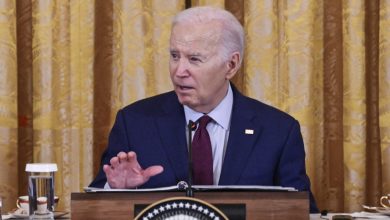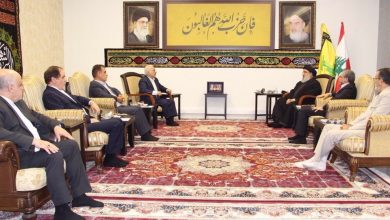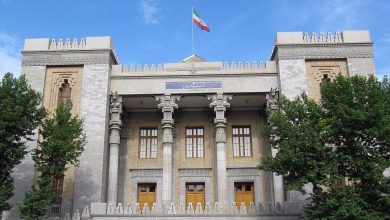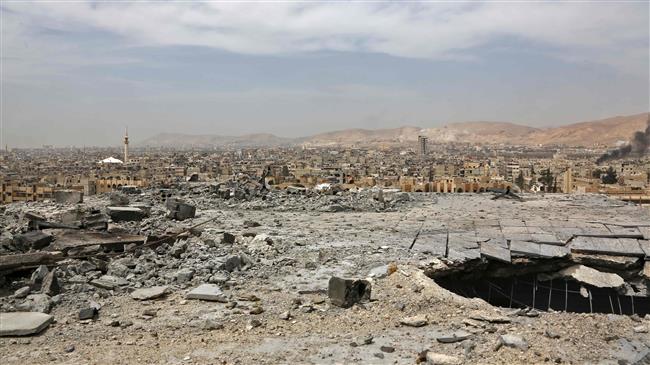Iran awaits ‘practical’ steps by US, Europe on nuclear deal
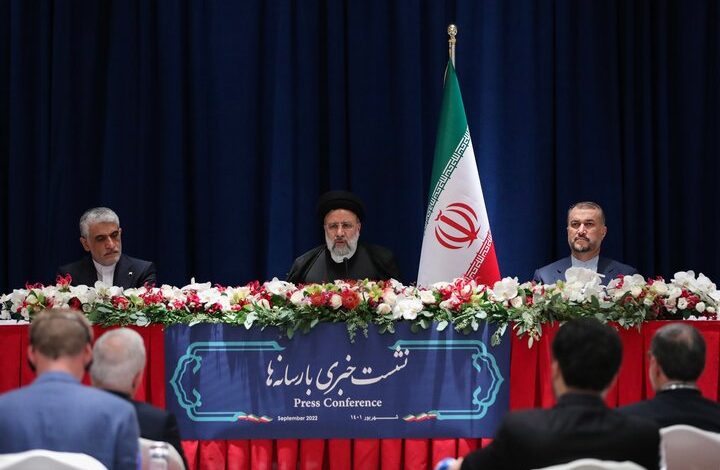
Addressing a news conference on the sidelines of the UN General Assembly in New York on Wednesday, Raeisi reiterated Iran’s compliance with its commitments according to the nuclear deal, formally known as the Joint Comprehensive Plan of Action (JCPOA).
“Iran has never left the negotiating table and emphasizes that the US and European countries should return to their obligations (under the JCPOA),” he added.
He regretted that the US and its Western allies pinned their hope on last year’s riots in Iran and left the negotiating table, which was a miscalculation.
“If the Americans are ready to fulfill their commitments, the ground will be prepared for [achieving] progress in the interactions and reaching a good agreement,” Raeisi said.
Iran proved the peaceful nature of its nuclear program to the world by signing the JCPOA with six world powers. However, Washington’s exit in May 2018 and its subsequent re-imposition of sanctions against Tehran left the future of the deal in limbo.
Multilateral diplomatic efforts to revive the JCPOA have been stalled since August 2022, with Iran blaming the United States for refusing to remove the sanctions that the nuclear deal had lifted and also failing to guarantee that it will not leave the deal again.
The Iranian president also touched on the country’s uranium enrichment activities and said, “The nuclear program is completely peaceful, and international observers also have always verified this issue.”
Raeisi rejected Western media claims about Iran increasing its uranium enrichment level, saying the country only enriches uranium to the level needed for its peaceful nuclear activities.
In December, Spokesman for the Atomic Energy Organization of Iran (AEOI) Behrouz Kamalvandi said the country’s uranium enrichment has officially reached the purity level of 60 percent in accordance with a December 2020 parliamentary law– dubbed the Strategic Action Plan to Counter Sanctions, which is aimed at countering sanctions and promoting the country’s peaceful nuclear program.
He said the parliamentary law has “provided good conditions for the country and today our [uranium] enrichment has officially reached 60% in accordance with this law.”
In response to a question about Iran’s move to bar multiple inspectors from the International Atomic Energy Agency (IAEA) assigned to the country, Raeisi said, “Iran has no problem with the principle of inspection unless the performance of some inspectors causes Iran to lose confidence in them.”
In that case, he added, it is natural that Iran demands the inspectors be changed.
In a statement on Saturday, IAEA Director General Rafael Grossi condemned what he called Iran’s “disproportionate and unprecedented” move to withdraw the designation of the agency’s several “most experienced” inspectors assigned to conduct verification activities in the country under the NPT Safeguards Agreement.
Iranian Foreign Ministry spokesman Nasser Kan’ani rejected such claims and said the United States and the three European parties to the JCPOA have abused the IAEA with the purpose of achieving their own political objectives.
Iran opposes slightest geopolitical change in region
Pointing to the fresh hostilities between Azerbaijan and Armenian-backed separatists in the Karabakh region, Raeisi said Iran has expressed its opposition to both sides to the slightest geopolitical change in the region.
“The Islamic Republic of Iran has repeatedly announced that tension and conflicts are not the solution to regional problems and these tensions can be resolved through mediation of powerful countries such as Iran which neighbors the Republic of Azerbaijan and Armenia,” the president emphasized.
On Tuesday, Azerbaijan launched a military operation in the region, accusing the Armenian-backed forces thereof of “systematic” shelling, “reconnaissance activities,” fortification of defensive positions, and “high-level of combat readiness.”
Later, however, the separatist Armenian forces reported that mediation by the command of the Russian peacekeeping contingent stationed in the region had resulted in both sides agreeing to the truce.
Tehran welcomed the agreement, with Kan’ani urging the two sides to focus on resolving their dispute based on “dialog and peaceful mechanisms” within the framework of Azerbaijan’s territorial integrity.
War brings along no result other than ruination and spreading hatred and endangers the region’s stability and security, he said.
Elsewhere in his presser, the Iranian president once again highlighted the significance of Palestine’s liberation which has always been the foremost issue of the Muslim world, and said, “The establishment of [Saudi Arabia’s] ties with the Zionist regime (Israel) is a stab in the back of the Palestinian people and resistance.”
Iran believes that Israel’s efforts to normalize relations with certain regional countries would never bring security to them “because regional nations have a deep grudge against this regime for 75 years of its oppression against the Palestinian nation.”
In late July, the Biden administration announced that a deal for Israel and Saudi Arabia to normalize relations may be on the horizon following National Security Adviser Jake Sullivan’s talks with Saudi officials in Jeddah.
RHM/Press TV
